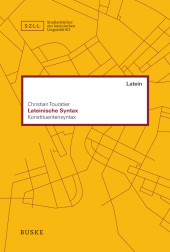
Geographic Approaches to Climate Change and Mitigation: Urban and Rural Perspectives (Volume 1)
Sorozatcím: Advances in Science, Technology & Innovation;
-
20% KEDVEZMÉNY?
- A kedvezmény csak az 'Értesítés a kedvenc témákról' hírlevelünk címzettjeinek rendeléseire érvényes.
- Kiadói listaár EUR 267.49
-
110 941 Ft (105 658 Ft + 5% áfa)
Az ár azért becsült, mert a rendelés pillanatában nem lehet pontosan tudni, hogy a beérkezéskor milyen lesz a forint árfolyama az adott termék eredeti devizájához képest. Ha a forint romlana, kissé többet, ha javulna, kissé kevesebbet kell majd fizetnie.
- Kedvezmény(ek) 20% (cc. 22 188 Ft off)
- Kedvezményes ár 88 753 Ft (84 526 Ft + 5% áfa)
- A kedvezmény érvényes eddig: 2025. december 31.
Iratkozzon fel most és részesüljön kedvezőbb árainkból!
Feliratkozom
110 941 Ft

Beszerezhetőség
Még nem jelent meg, de rendelhető. A megjelenéstől számított néhány héten belül megérkezik.
Why don't you give exact delivery time?
A beszerzés időigényét az eddigi tapasztalatokra alapozva adjuk meg. Azért becsült, mert a terméket külföldről hozzuk be, így a kiadó kiszolgálásának pillanatnyi gyorsaságától is függ. A megadottnál gyorsabb és lassabb szállítás is elképzelhető, de mindent megteszünk, hogy Ön a lehető leghamarabb jusson hozzá a termékhez.
A termék adatai:
- Kiadó Springer Nature Switzerland
- Megjelenés dátuma 2025. október 5.
- Kötetek száma 1 pieces, Book
- ISBN 9783031921186
- Kötéstípus Keménykötés
- Terjedelem368 oldal
- Méret 279x210 mm
- Nyelv angol
- Illusztrációk XVI, 368 p. 200 illus., 189 illus. in color. Illustrations, black & white 700
Kategóriák
Hosszú leírás:
This book provides an exploration of the geographic dimensions of climate change, focusing on both urban and rural perspectives. By examining the unique challenges and opportunities that arise in different environments, it offers a balanced and holistic approach to climate mitigation. It demonstrates how geographical analysis may guide and strengthen efforts to mitigate climate change by bringing together a variety of tactics, case studies, and research findings from around the world. The main topics covered include urban planning and climate resilience, rural land use and sustainability, the role of geographic information systems (GIS) in climate modeling, and the socio-economic impacts of climate policies. Special emphasis is placed on the interconnectedness of urban and rural ecosystems, recognizing that solutions in one domain can have ripple effects in the other. For instance, the book explores how rural land conservation can support urban carbon sequestration efforts, or how sustainable urban design can reduce the pressure on natural rural resources. These topics are crucial as the world faces environmental changes. Cities are responsible for the majority of global emissions, yet rural areas often suffer the consequences of climate impacts. Understanding the geographic factors influencing both regions is crucial to developing tailored, effective mitigation strategies. The book explores the innovative approaches, such as the use of nature-based solutions in urban areas or regenerative agriculture in rural settings, that offer promising routes for sustainable development. The problem addressed in this book is the lack of a unified geographic perspective on climate change mitigation. By discussing urban and rural strategies, it aims to encourage cross-disciplinary collaboration and inspire actionable solutions that answer to the needs of diverse communities. Climate change is a global issue, but its impacts and solutions are deeply localized; understanding these geographic issues is essential for policymakers, urban planners, landscape architects, environmental scientists, and community leaders. Targeted at academics, professionals, and policymakers involved in climate change, urban planning, landscape architecture, and environmental management, this book provides readers with the insights needed to create impactful, location-specific strategies for a more resilient and sustainable future.
TöbbTartalomjegyzék:
.- Topic 1 Applications of Climatology in Urbanism.- Chapter 1 Soaked Cities: Climatic Moisture and Urbanization Patterns in India from 1971 - 2011.- Chapter 2 The interface between growing informal settlements and environmentally sensitive areas: How to plan for taboo spaces? - Chapter 3 Adaptive ventilation strategy for climate control in an unheated historic church in Milan.- Chapter 4 Earth Observation analysis and microclimate simulations of mitigation scenarios to support urban planning: the MIRIFICUS project, etc.
Több








